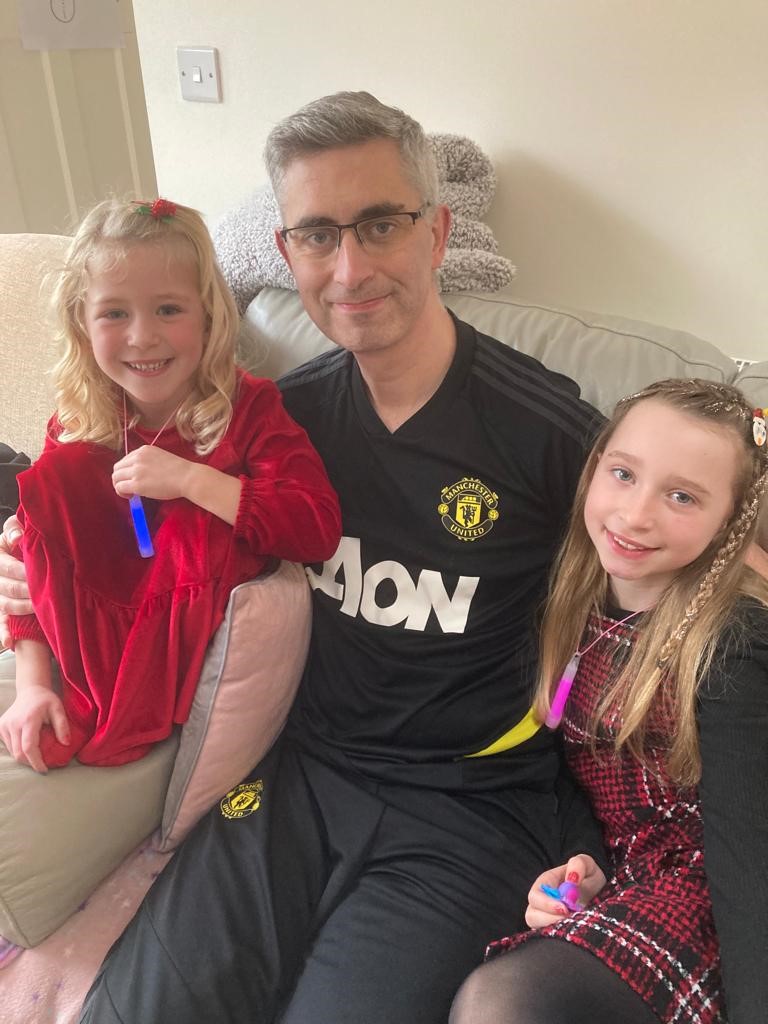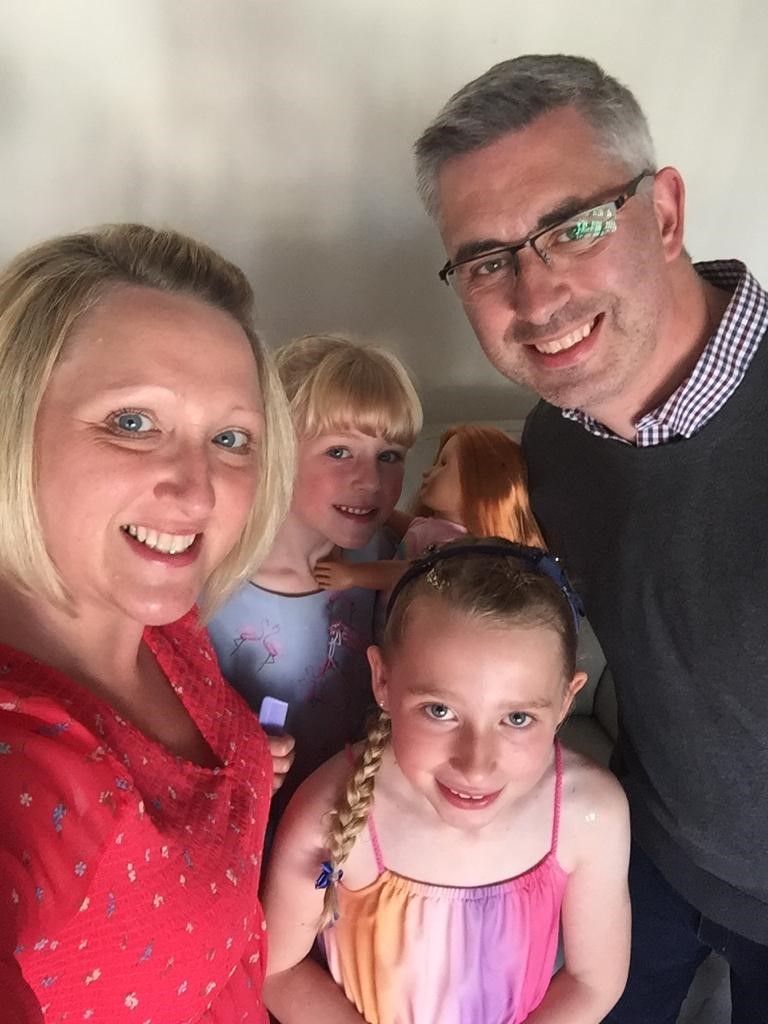A Walsall man is hoping his experience of a pioneering treatment regime for a rare condition, which saw him going from having three months to live to now living a near-normal life, will unlock the therapy for others.
Michael Jameson, from Willenhall, was 41-years-old when he was diagnosed with AL amyloidosis and myeloma in December 2021 – three months after undergoing a series of tests to establish what his symptoms were.
Michael Jameson with his daughters, Emily and Grace
Despite him having a complete response to DaraCyBorD treatment – which combines daratumumab with cyclophosphamide, bortezomib and dexamethasone – the National Institute for Health and Care Excellence (NICE) rejected it as an option for the NHS, claiming it was not cost-effective. This is despite the fact that all four drugs are available individually on the NHS.
Michael was asked by the charity Myeloma UK to help with its appeal against NICE and the organisation has since said it will review its original decision after an independent panel agreed NICE’s decision was unfair and its appraisal committee may have incorrectly interpreted key evidence.
“I would like to see this approved and made available on the NHS,” said Michael. “Not for me, it’s late in the game for me now, but for those diagnosed tomorrow, next week, whenever it might be. If they don’t have private healthcare they are reliant on different drugs that aren’t as effective for this condition and could end up dying.”
At first, the father-of-two was believed to have had a heart attack and was later diagnosed as having myocarditis, but when his heart symptoms began to worsen, he was finally diagnosed with AL amyloidosis – a rare protein condition that affects the heart and other organs – and myeloma, a blood cancer.
Michael Jameson with his wife Katherine and two daughters
“I was given a life expectancy of three months on diagnosis,” said Michael, who is married with daughters Grace and Emily, aged ten and six.
“I was 41, with two young kids. It was quite a devastating prognosis. The consultant advised I needed immediate treatment, but the most effective treatment was only available to private patients.”
Luckily, he has private healthcare through his employer and he was sent to HCA University College Hospital in London, where he was a patient for three weeks.
Afterwards, Michael relied on family to help him get weekly treatment for four months. He said it was only possible because his uncle owns a camper van. He drove from his home in Saltburn, North Yorkshire, to Manchester to pick up his aunt, and together they would collect their nephew so that he could be transported – lying down – to London to get his treatment.
Since his gruelling treatment regime, which has included chemotherapy for the myeloma, he has had a complete response and although AL amyloidosis is not yet curable, he hopes that the next step of a stem cell transplant could help him go to into remission.
In the meantime, Michael is back at work – in quality in the aerospace industry – full time and has enjoyed two holidays with his family. He also got married in September to Kathrine.
“The treatment has given me another chance at life – I would not be alive without it,” he said.
“When I started the treatment, I was in a really bad way. I had dangerously low blood pressure. I was physically drained of all energy and practically bedbound. Due to the vomiting and lack of activity I had lost over four stone in weight since I initially became symptomatic and I was now struggling with everyday tasks. I would become breathless just sitting up.
“Since then, I’m doing all the things that a normal person would do. For those who have had this treatment, it’s a no-brainer. Just look at what it’s doing and you can see how effective this treatment is.”
NICE is reviewing its original decision, but no date has been set for it to make an announcement.
Written by Jayne Howarth






